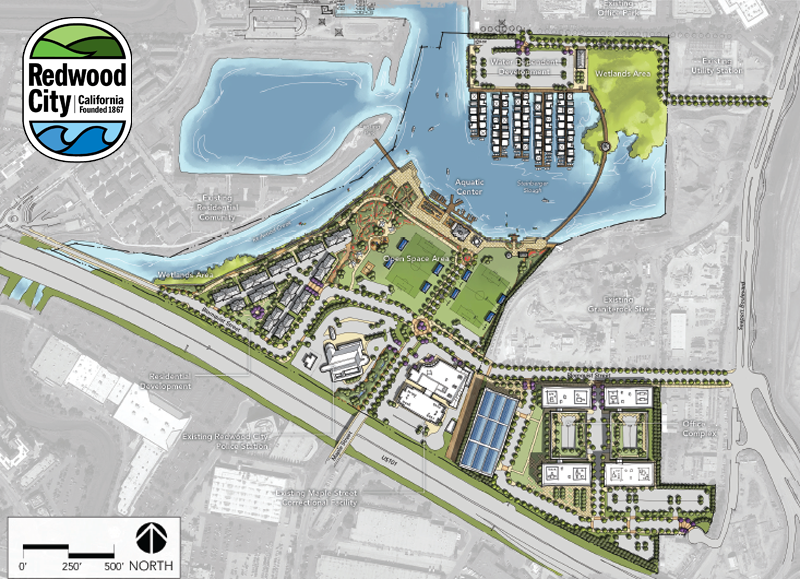Yesterday, Redwood City released to the public the Draft Inner Harbor Specific Plan (DIHSP) and the associated Draft Environmental Impact Report (DEIR). These documents, and other information pertinent to the development of the Inner Harbor, can be viewed at www.redwoodcity.org/innerharbor.
The Inner Harbor is a 100-acre plot of land north of Highway 101, in-between Redwood Creek and Seaport Boulevard. The Inner Harbor Specific Plan, just like the Downtown Precise Plan, is intended to provide guidance for the future development of the area. Its general objective is to create a destination harbor center with areas for homes, recreation and employment.
In addition to studying the environmental impact of the land usage proposed in the DIHSP, the DEIR also includes impact reports for alternative land use possibilities. It isn't common for the Draft Plan, Draft EIR, and Draft alternatives to be released all at once, but it was done deliberately to give the public and decision makers plenty of time to digest all of the information before the adoption process. The released drafts cover the following topics: baseline conditions, vision framework, land use and zoning, design guidelines and standards, circulation and parking, utilities, community benefits, and implementation.
The community will have plenty of chances to voice their opinions/concerns about the plan. The Draft EIR is under a 90-day review period, during which time the public is encouraged to send in written questions and comments. In addition, the Planning Commission will be holding a public meeting on December 1st at 7pm in City Hall to receive further comments and questions. All questions received at the meeting and in writing during the 90-day review period will ultimately be included and responded to in the final EIR.
Additional venues for community input will be established in the coming months - to stay updated, check in periodically to the Inner Harbor Website referenced above.
